Why Does My Labradoodle Smell?
The last thing you want to hear is that the new Labradoodle you just brought into your life is going to be smelly.
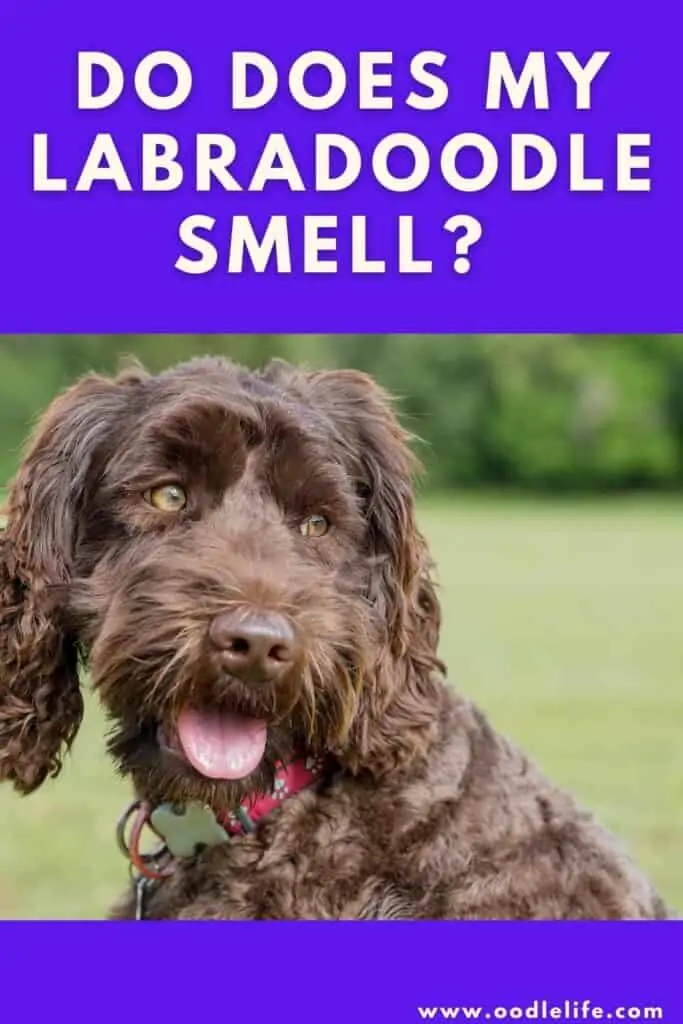
But it’s true, Labradoodles are sometimes more prone to certain smells than other breeds. But why does my Labradoodle smell so bad? Can if be fixed (yep!).
The truth of the matter is that all dogs stink, but some stink more than others. Labradoodles in particular can be more susceptible to certain odours for a variety of reasons.
The primary reason why Labradoodles can be more prone to smelling (like any Poodle mix) is because they are very active, love the outdoors, and LOVE water.
This already sounds like a recipe for disaster.
It means that there is a greater chance of them getting dirty, which increases the likelihood of infections, allergies, and dragging who knows what throughout your house. Aside from their active lifestyle, there are a multitude of other reasons why your Labradoodle may smell.
All of which we will cover below.
Why Does My Labradoodle Stink?
Labradoodles can carry a smelly odor for a variety of reasons. However, the most common reasons are typically; ear infections, a dirty coat, allergies, gas, dental issues, or anal glands.
Ear infections
In general, all doodles are prone to ear infections due to their Poodle inheritance. Poodles inner ear hair can block the airflow, and cause bacteria, and moisture to build up inside their ears.
This can cause ear infections, which can then cause a nasty smell to come from your dog’s ear canal. Outside of the inner ear hair, Labradoodles also have long, droopy ears which can mean that they are more likely to trap dirt, grease, and other unwanted substances (which can lead to infection).
If you notice the smelly ears to be more yeasty, or heavy, then take a closer look at your pup’s ears, because this is likely where the smell is coming from.
If you notice your dog scratching their ears, or shaking their head more than normal, or is in a general state of discomfort. They likely have an infection, which will have to be dealt with immediately by taking them to the vet.
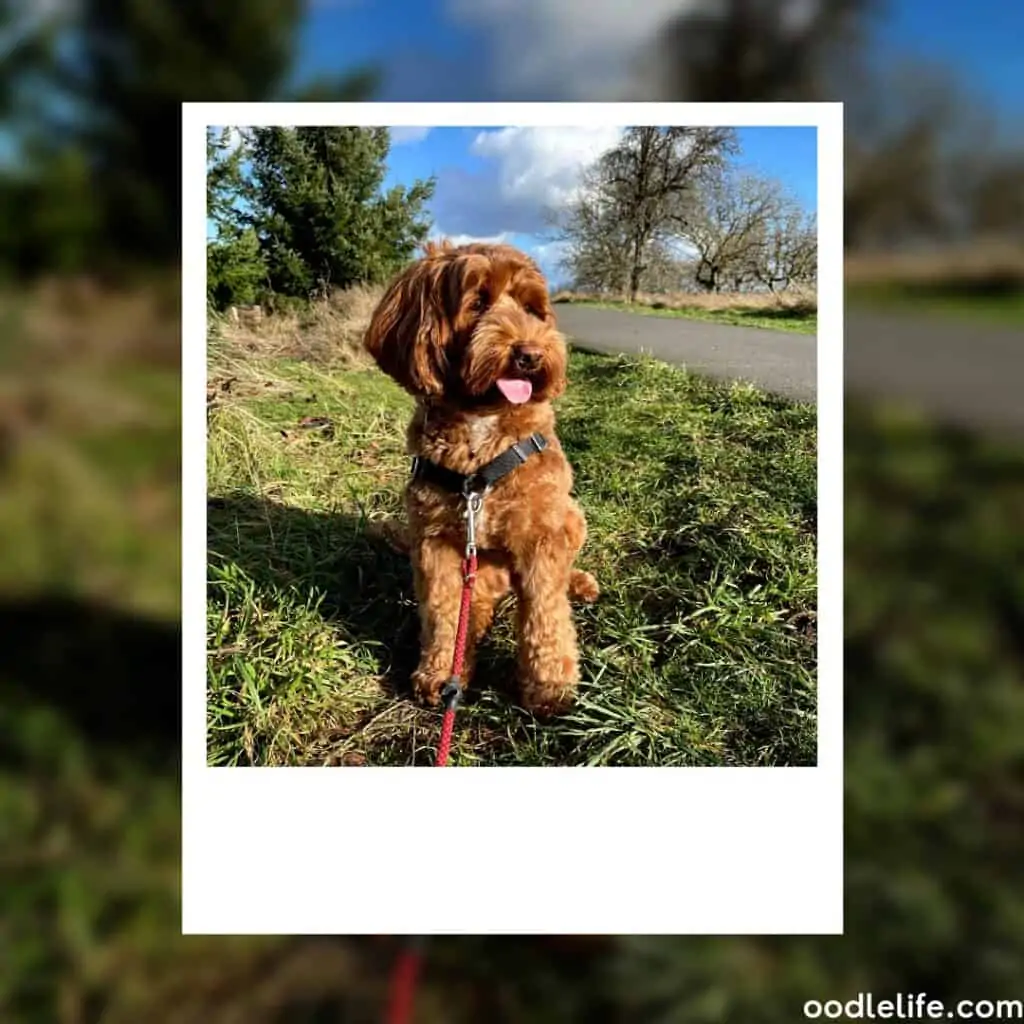
Dirty Coat
This one may seem obvious, but if there’s one thing that Labradoodles are known for it’s getting dirty, and rolling in smelly stuff. Both the Poodle and Labrador have garnered massive reputations for being spectacular hunters, and water dogs.
This combination means your Labradoodle will also inherit much of the same traits. While this fun-loving nature is part of why we love Labradoodles, it can also mean more is being dragged through the house, and latching onto their coat.
If the smell is indeed coming from the dog’s coat, you will most likely sense that distinct wet dog smell. This just means that they were not completely dried off, or they got into something that maybe they shouldn’t have.
But either way it can be resolved with a simple bath, and grooming session, and is generally nothing to worry about (so long as it’s dealt with).
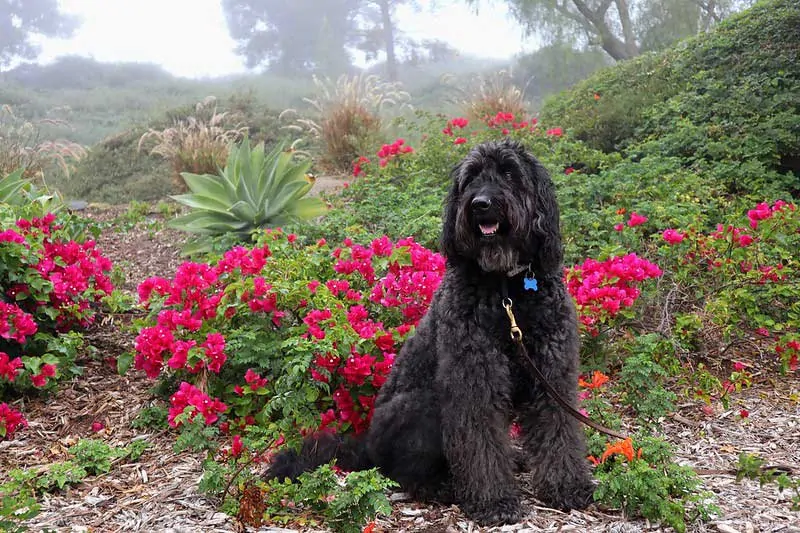
Allergies
Another common problem many Labradoodle owners run into is their dog smelling due to an allergic reaction.
This could be because of a new shampoo, new food, or even a reaction to fleas. Tying into the aforementioned point of doodles being very active, they may run into situations where they smear themselves in something unpleasant, which can result in a plethora of negative results.
Fleas are most active during the summer, which is why it’s most important to groom regularly, and pay close attention to your dog’s skin during these months. Fleas can easily latch onto dogs, and once their saliva gets into the dogs bloodstream, the dog can become infected, or develop an allergic reaction.
Dogs (much like humans) can become allergic to just about anything, so be conscious of any new shampoos, diets, or materials in their environment, as they could be having an adverse effect to these products. Allergies may be present if you notice excessive itching, swelling, or irritation in any of these areas.
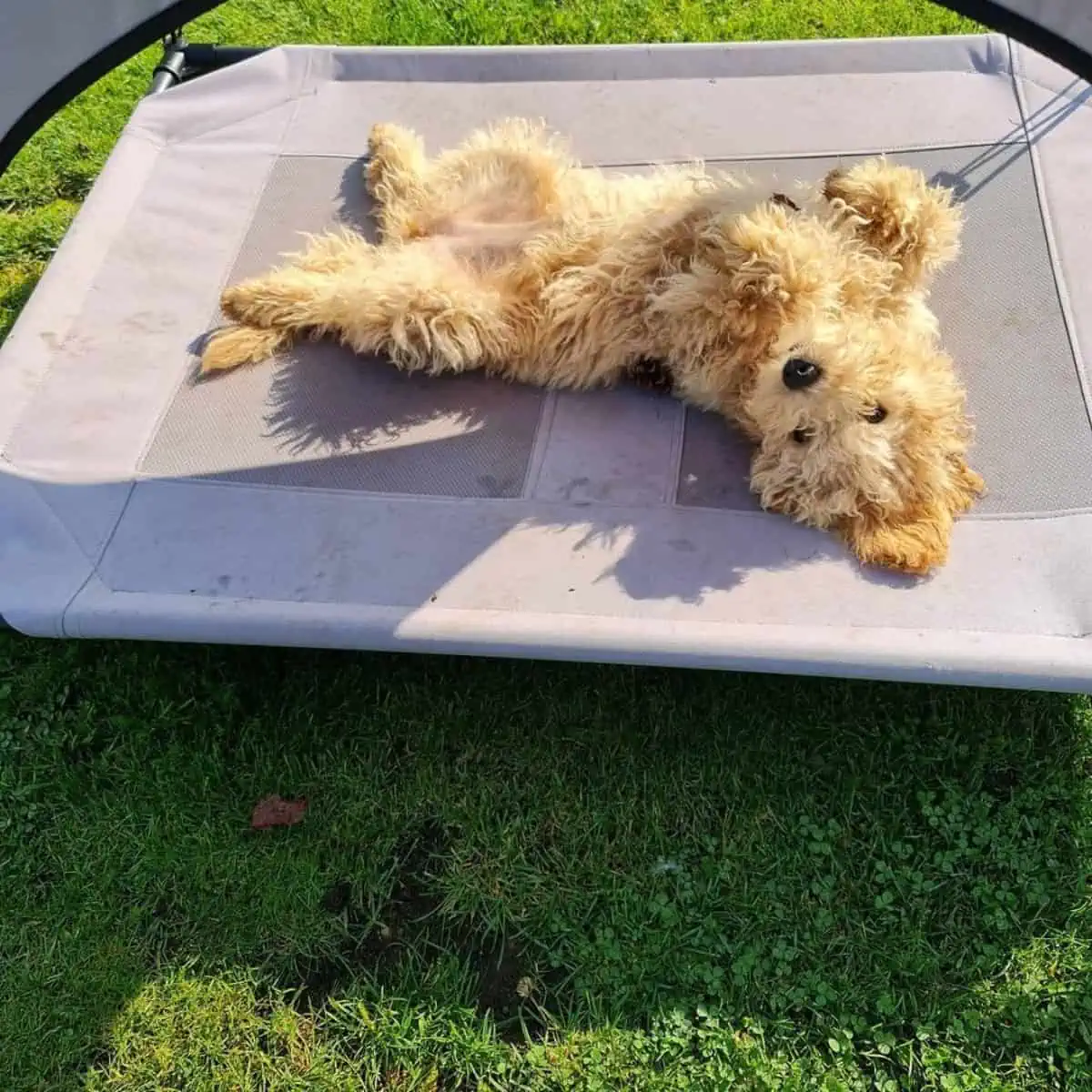
Gas (diet)
One of the biggest culprits when it comes to your Labradoodle stinking is due to gas, which can generally be linked directly to diet.
While all dogs get gassy from time to time, if it persists, or if there is an unusually foul smell present. It could be a sign to change their diet.
Dogs are natural carnivores, which means they need meat to live a healthy lifestyle. This doesn’t necessarily mean you should feed them strictly meat, but it should be the main ingredient for any kibble, or treats that you do buy.
Look for a fresh food diet that helps eliminate bad smells, as they are far more natural due to the removal of additives, and ingredients found in typical dog food.
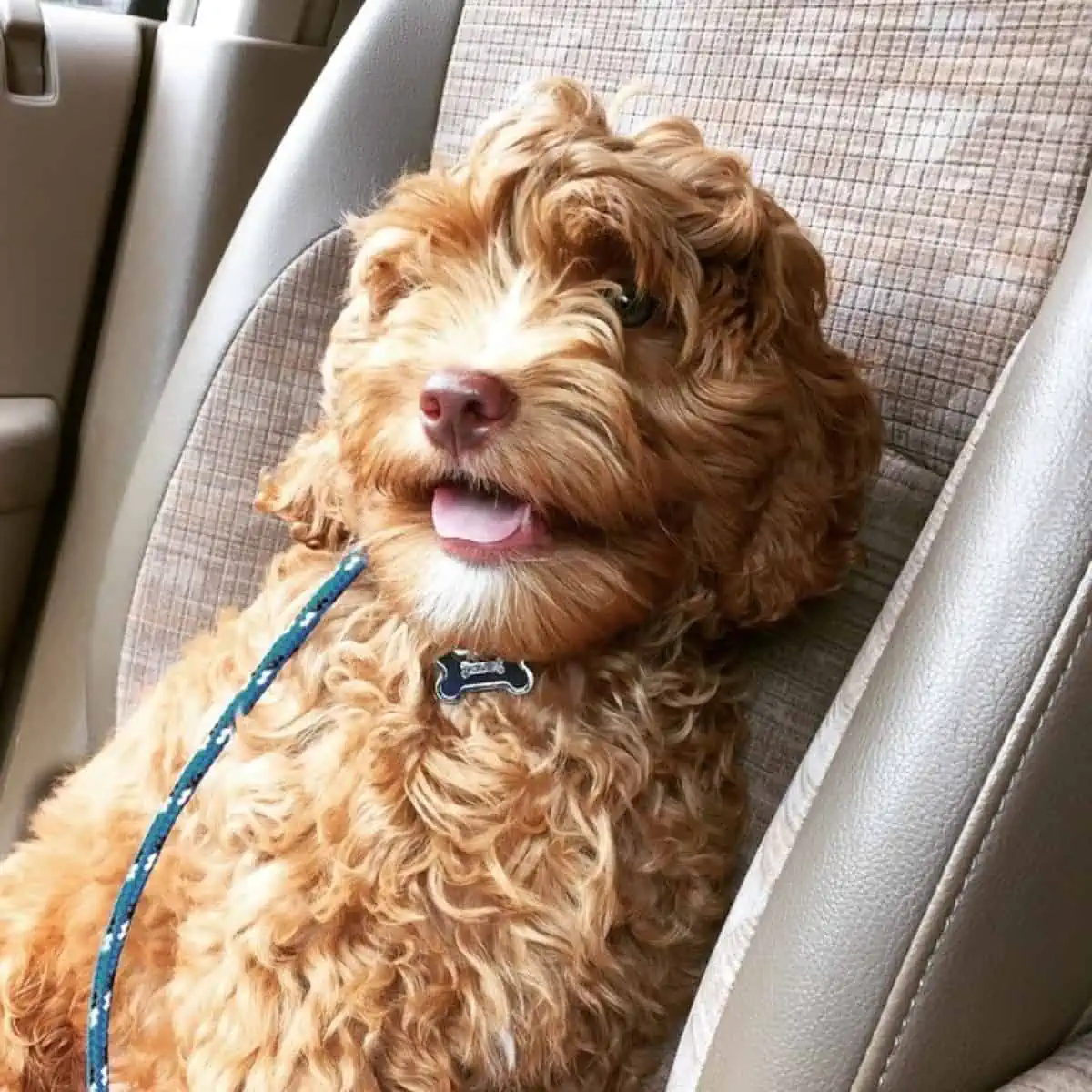
Dental Issues
All dogs can be prone to bad breath, which can be the primary reason you’re smelling such an awful odour. This can be most commonly due to gum disease as bacteria gets trapped in the gums, or plaque build up.
The good news is that plaque can be easily removed by you at home, however if the issue persists and turns into calculus, or tartar then this will have to be professionally cleaned. To avoid this situation entirely, there are a variety of dental treats, or chew toys that are designed to clean your dog’s teeth.
Another option is to invest in an all-natural dog toothbrush and toothpaste, so that you can manually clean your dog’s teeth (recommended once a week).
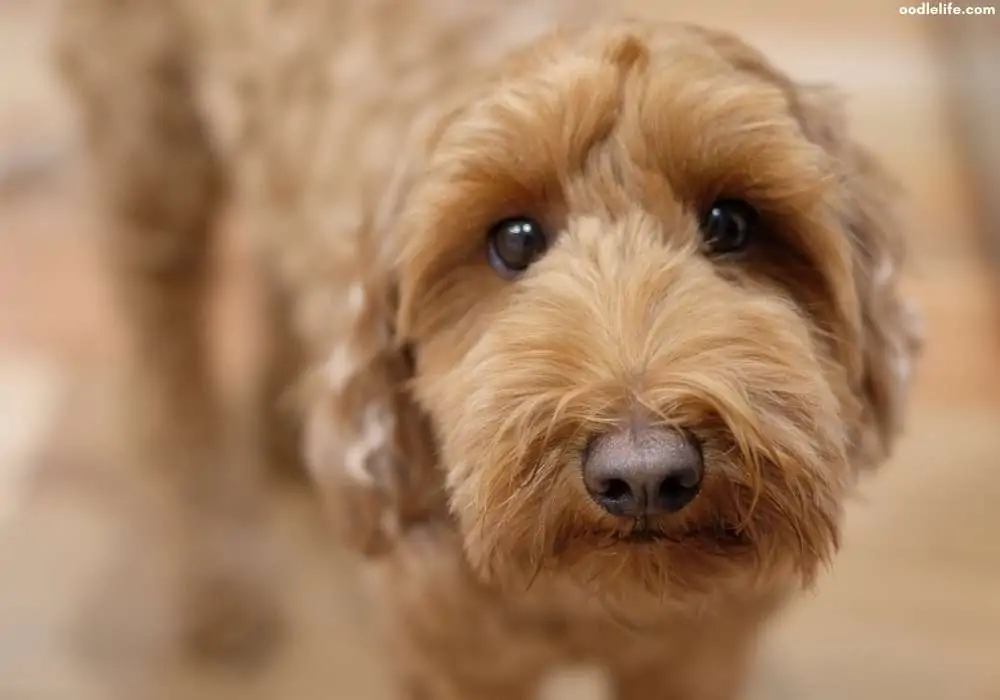
Anal glands
The final option that could be present is your pup having issues with their anal glands.
If you’ve checked all of the above potential problems, then there is a reasonable chance this could be the issue. You may notice swelling in the area, or the dog being in pain when sitting down, pooping, or them attempting to lick/bite their behind.
Also, if you notice a strong and rather fishy smell coming from your Labradoodle, this is typically not normal, and could be the result of anal gland issues. If you notice any of these symptoms, you should definitely take your dog to the vet, and have the glands looked at professionally.
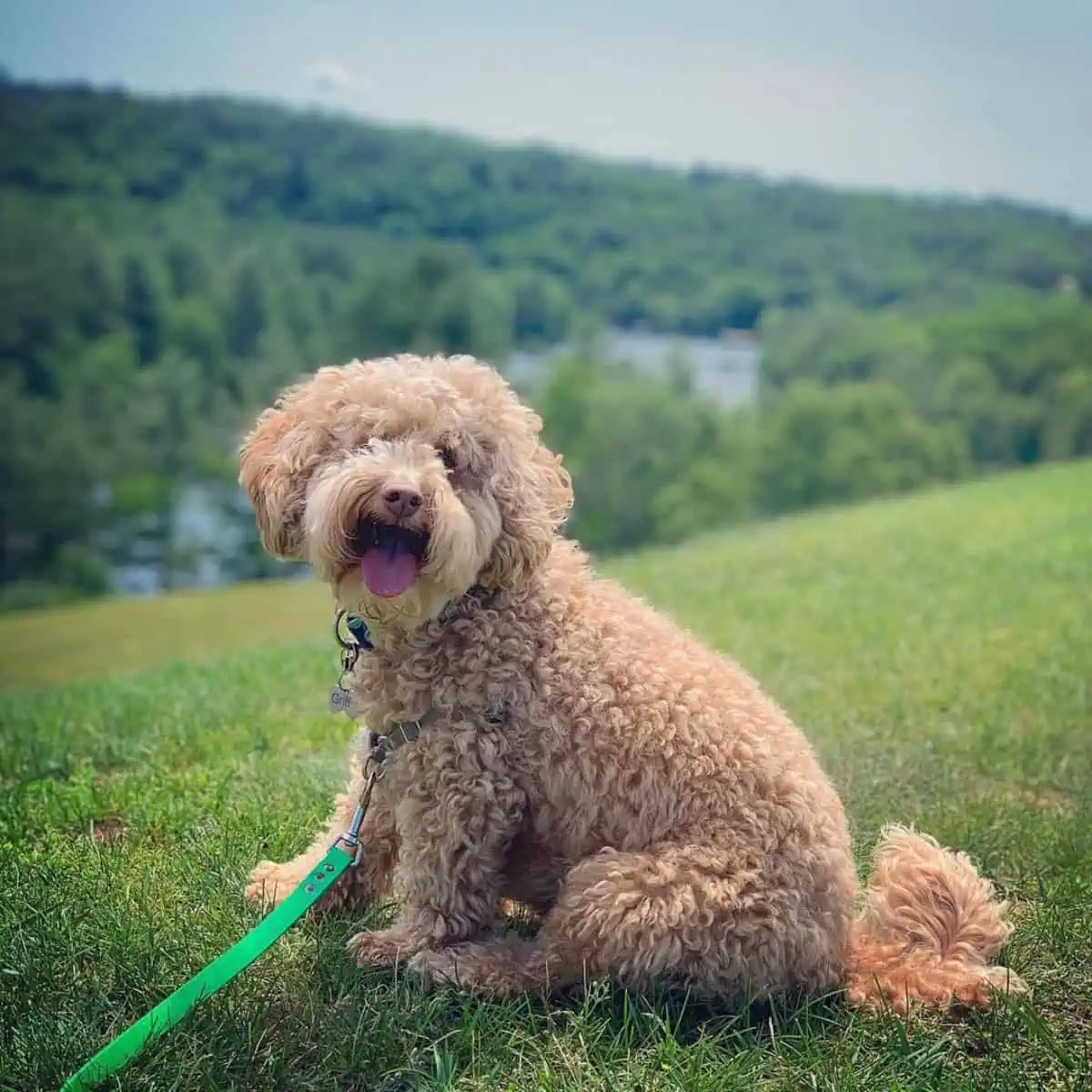
How to Stop a Labradoodle from Stinking?
When it comes to removing the stink, a lot of it will depend entirely on what the exact issue is. If you fear that your dog breed may have an ear infection, dental problems, or anal sacs, then you are likely going to have to schedule an appointment with your local vet.
However, if the issue can be narrowed down to something more simple such as an allergy, gas, or a dirty coat. These are things that you can change from home.
Grooming Away the Smell
This is without a doubt the most important step to take to removing the stink, and will go a long way in preventing it down the road as well. You should always start by brushing your dog with a high-quality comb or brush, working your best to get out any mats or debris in your dog’s coat.
When it comes to Labradoodles specifically, they love water which can make the grooming routine even more paramount as mats only get worse with water.
The next step you should seek to take is to regularly bathe your dog. Some owners are simply happy washing their dog once or twice a year, likely because they don’t want to go through the hassle of trying to convince the dog to get into the tub.
A huge deterrent for owners is the reaction their dog has as soon as you turn the tap on. However, if you turn it into more of a habit (once a month), the dog will become much more comfortable, and the entire process will become much easier. While washing your dog, make sure to take it slow, go through the entire coat, and make sure to shower the dog with loads of praise, and positive reinforcement (treats).
After the bath, the drying portion is also essential as any moisture leftover could just put you back at square one. Start by squeezing out as much water as possible before using the towel, and pay extra close attention to the ears! (more susceptible to infections).

Clean The House and Dog Areas
Post grooming, the next most important factor for removing any unwanted stink is by staying on top of the house cleaning. Remember to sweep up, and vacuum any remaining hair left over after the grooming session, but even making it into a regular routine would be beneficial.
Many people underestimate the importance of regular vacuuming and hair removal, but together with daily grooming will go a long way in preventing odor.
Air Fresheners
Once you’ve groomed your dog, and cleaned up after them, the best step to removing the odour is with an air freshener, or filter. There are a ton of tremendous options online for free-standing automatic release air fresheners so that you can simply plug it into a socket in the room your dog spends the most time in, and you’re good to go.
There are also a variety of electric air filters, and purifiers that help to remove any unwanted dust, odour, and chemicals, leaving your room smelling good, and clean.
Smelly Labradoodle Conclusions
The good news is that Labradoodles have a non-shedding coat that won’t smell as bad as other dog coats (plus it is allergy-friendly).
They don’t have an undercoat, and don’t shed hair, but their lifestyle puts them at a greater risk of developing certain odors.
Labradoodles are without a doubt one of the most adorable breeds in the world, however they also combine two breeds that can be very smelly for different reasons.
Both the Labrador and the Poodle are considered water dogs, and to be extremely active, absolutely LOVING the outdoors. While this can provide us with some much-needed entertainment, it also puts them at a greater risk to infections, dirt, and obtaining a smelly coat.
Aside from their active lifestyle, they can be more prone to certain infections, allergies, and food sensitivities that can make them smell. To put it simply, there are a variety of potential factors, but as long as you are diligent in finding a solution, and open-minded to all of the possible outcomes.
You should have no problem removing the stink, and maintaining your dog’s health.